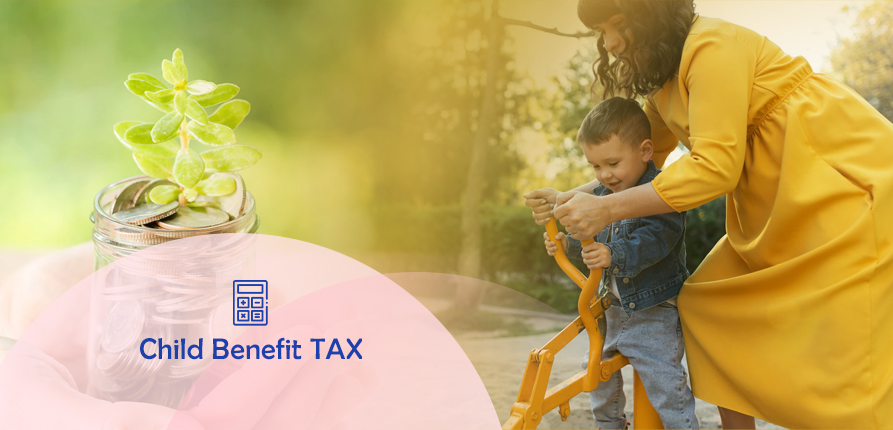Don`t forget to check our child benefit tax calculator before you apply
Child Benefit is a familiar concept in the UK, with around 7.09 million families and 12.31 million children in receipt of Child Benefits as at 31 August 2021. As much as it being a popular benefit claims, there are some catches around Child Benefits of which you may not be aware.
What is Child Benefit?
You are eligible for Child benefits if:
- You have any child
- under the age of sixteen years old
- under twenty years old, if he/she is still in approved education or training. - You live in the UK
You can claim Child Benefit if the child is not biologically yours for example: Adopting a child, fostering a child, and in some cases looking after someone else’s child. However, they cannot be receiving help from the council and two people cannot get Child benefits for the same child.
When do I stop receiving Child Benefits?
You stop receiving child benefits as soon as your child starts working (getting paid for 24 or more hours a week or starts an apprenticeship in England or receives benefits under their own right (Income support, employment allowance, or tax credits).
High-Income Child Benefit Tax Charge
If you or your partner earn over £50,000 HMRC can take back up to 100% of the Child Benefit Tax you have received and you would potentially be subjected to High Income Child Benefit Tax.
In cases where your income and your partner’s income are over £50,000, then whoever has the higher income, is responsible for paying the tax charge. Check our high-income child benefit tax calculator to see if you fall into the taxable payment category:
How much is the charge?
| Higher earner’s (you/your partner’s) income is between 50K & 60K | 1% of the amount of the child benefit for every £100 of income above £50,000 |
| Higher earner’s (you/your partner’s) income is more than 60K | Equal to the full amount of the child benefit taken |
Take a look at the calculator to find out more; Calculator?
Do you have to disclose child benefits in your returns? (How it affects you)
If you fall into the High-Income Child Benefit Tax, you will be required to provide a self-assessment tax return each year even if you have a PAYE job that pays your tax and national insurance for you. This is because HMRC will need to calculate what Child Benefit needs to be taken back due to your higher income. There is also an option to opt out of claiming Child Benefits once your income exceeds £50,000 a year, this will then help you avoid having to file a self-assessment every year.
Conclusion
It is important to keep an eye on the catches on Child benefits, as we all know the government does like to change things from time to time. But if you fall into the High Child Benefit Tax bracket and do not want to submit a self-assessment it`d be better to work with an accountant that specialized in income tax.
More questions on Child Benefit Tax? Why not give Debitam a call and speak to one of our friendly accountants.













